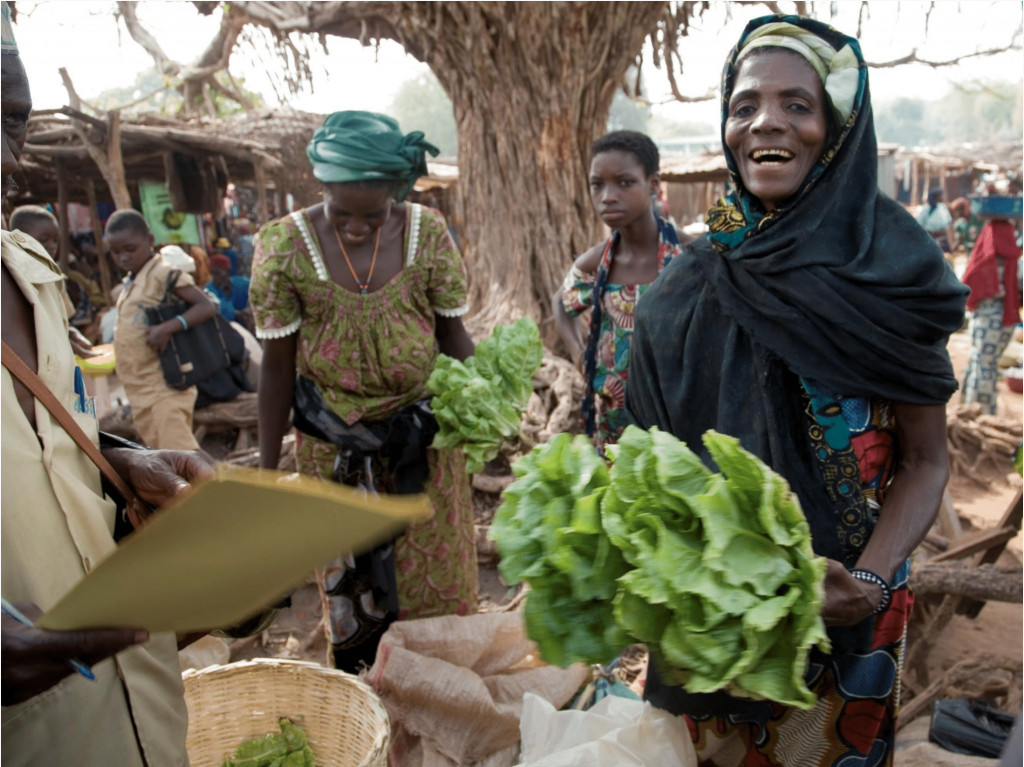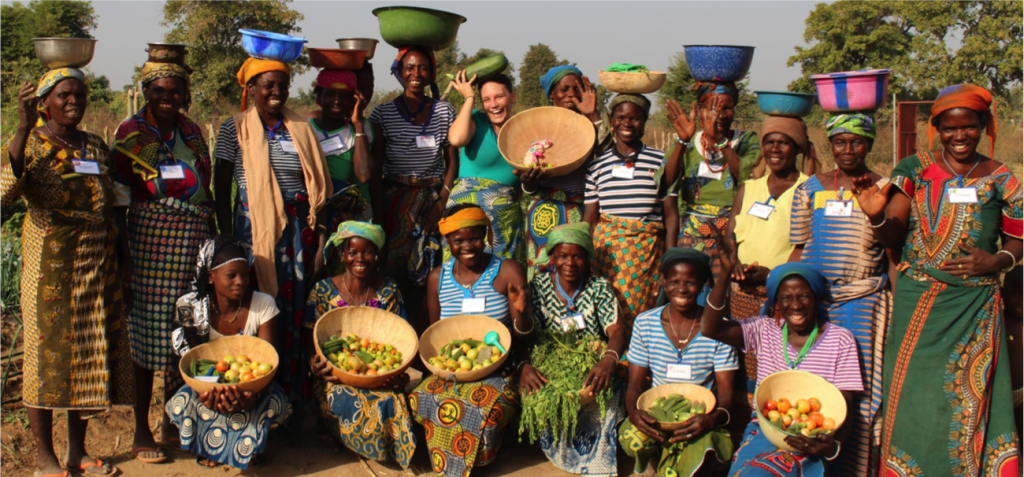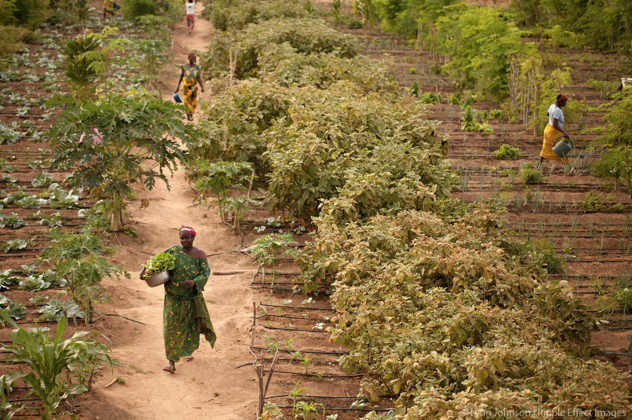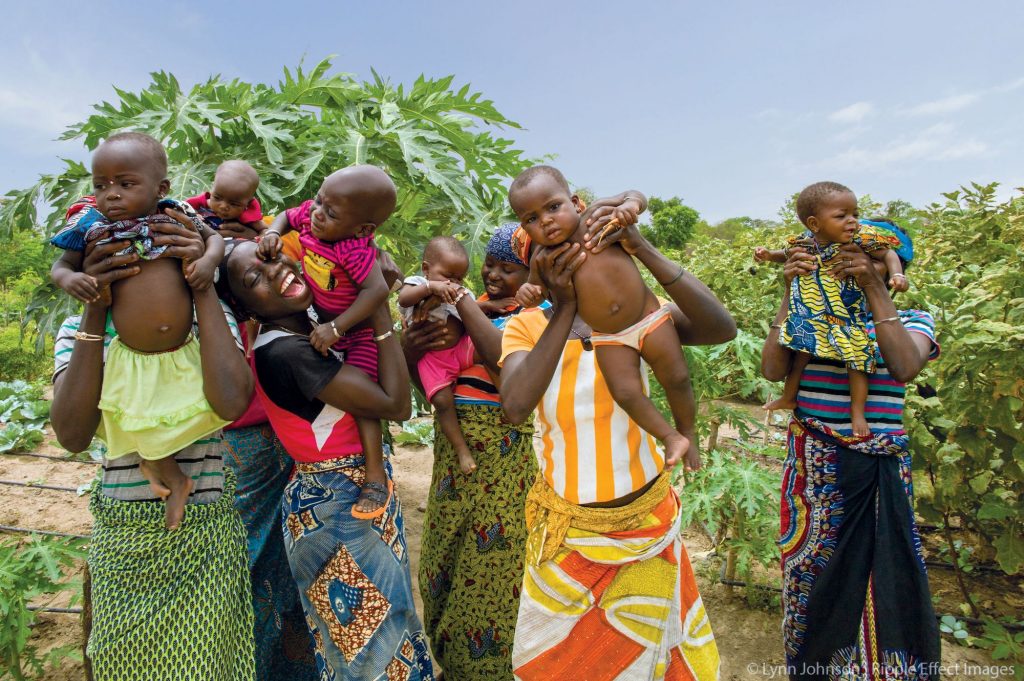Enhancing Food Security and Community Resources
Building on the success of a pilot project, in 2010 SELF embarked a widescale electrification initiative in the Kalalé District of Benin, West Africa. Kalalé is a rural, arid region located in the north of the country where electrification rates are extremely low. Without energy to pump and transport water, the six-month dry season is a particularly challenging time. Local people are forced to turn to contaminated water sources and fresh produce is scarce, with serious impacts to human health and nutrition.
In collaboration with local communities, SELF developed a solution to end food insecurity in eight villages and complete a “whole village” electrification in two more.
Expanding Solar Market Gardens
When SELF was initially approached for assistance in Benin in 2006, we introduced the Solar Market Garden (SMG) model. The SMG combines solar water pumps with drip irrigation to consistently water crops, creating a safety net for the dry season and reducing vulnerability to seasonality and climate change. The results in the first two villages to receive an SMG—Bessassi and Dunkassa—were promising, and it was clear that more communities could benefit from this technology.
Beginning in 2010, SELF worked to implement SMGs in eight more villages in the Kalalé District. By 2013, these gardens were up and running. Women’s farming cooperatives were set up and local trainings were held on system maintenance. In the months that followed, food security in the villages increased, along with health and nutrition. In total, 400 women farmers became income earners by selling surplus produce at the market, which was used to send their children to school, pay for healthcare, and more. They also gained more influence in their communities, regarded as successful farmers and savvy entrepreneurs who now bring food to more than 66,000 individuals.
This work earned the attention of the United Nations Climate Change Secretariat, who awarded SELF the “Momentum for Change 2015 Lighthouse Activities” award at the Paris Climate Summit in December 2015. More information about the SMGs can be found on the UNFCCC’s website.
Whole Village Electrification
A second component of this project involved returning to the villages of the first two pilot projects to complete a whole village electrification initiative. Using the power of the sun, SELF engineered solutions to a variety of community-level development needs.
A major component of the work was establishing a micro-enterprise center in each village. Micro-enterprise centers provide a space for local businesses to set up shop and grow their enterprises using the benefits that electricity brings. This not only provides opportunities to small business owners and their employees, but also provides customers with important goods and services.
Other elements of the whole village electrification project included solar streetlights to improve safety and security at night; water pumping stations to deliver plentiful water free of contamination; electrification of two schools; vaccine refrigerators to improve immunization rates; an internet café with a VSAT system; and solar home lighting options. All work was completed in 2014, and the systems have been running successfully since.





SELF is a global leader in the fight against energy poverty. Since 1990, we’ve pioneered unique applications for solar energy, powering progress on food security, health care, education, gender equity, and more.
501(c)(3) non-profit organization
EIN: 52-1701564